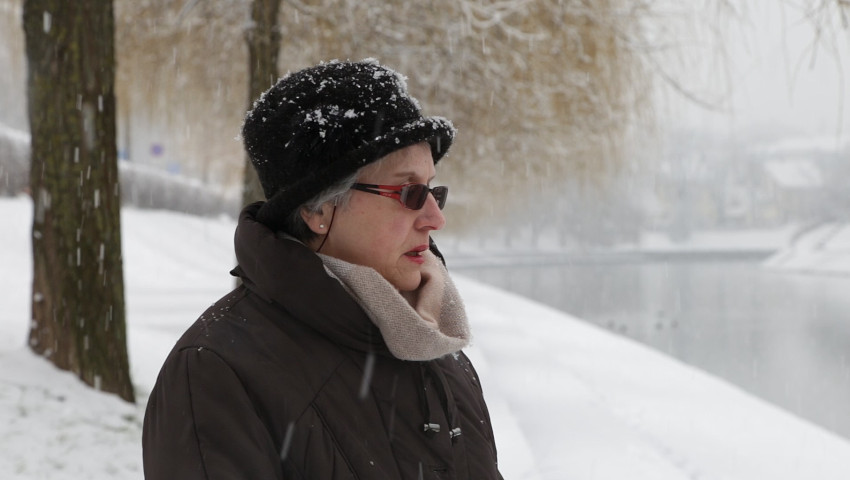
MARIJANA
- Film Title
- MARIJANA
- Release date
- 23.05.2018
- Running time
- 13’26”
- Film crew
- Lidija Bertoncelj, Violetta Bottazzo, Neli Filipić, Zdenka Jerala-Štrukelj, Urška Majaron, Vida Vilhar Pobegajlo, Silva Reiner, Jasna Tepina, Uroš Trampuš, Bojana Žokalj Jesih
- Producer
- Slovenian Third Age University
- Professional support: Script, directing, sound
- Simona Jerala
- Professional support: Camera
- Maks Sušnik
- Professional support: Film editing
- Andrej Avanzo
- Cast
- Marijana Češnovar
- Extras
- Tjaša Anžlovar Skitek, Benjamin Bajc, David Bajc, Violetta Bottazzo, Zdenka Jerala-Štrukelj, Jurij Jesih, Neja Krauthaker, Nena Lamut-Mihajlovič, Katarina Majaron, Lana Mulec, Živa Pleško, Enej Plut Lamut, Silva Reiner, Hana Shaar, Aljaž Škrinjar, Andreja Škrinjar, Martina Trampuš, Uroš Trampuš, Svarun Žokalj, Kajetan Žokalj, Bojana Žokalj Jesih
- Country
- Slovenia
- Language
- Slovene
- Subtitles
- PT - DE - IT - SI - EN - GR
- Film Synopisis
- University graduate in economics, Marijana is of both Bosnian and Slovenian origin. At the outbreak of Bosnian war she lived in Sarajevo “the only life she had ever known”. She was evacuated to Slovenia together with her son, leaving behind her parents, her mother-inlaw, her friends. Traveling on one of the many buses overcrowded with women, children, crying infants, she arrived in Slovenia which she had considered her country. Back in Sarajevo Marijana had worked in a Slovenian company, she used to come to Slovenia on holidays, she understood and spoke Slovene. Upon her arrival, however, she painfully discovered that in this country of hers she was suddenly considered as “a foreigner, an enemy, a refugee”. Her integration started with the help of a social worker and a next door neigbour. First, the social worker offered her to do the cleaning for three Slovenian families with higher social status. Her next door neighbour offered her many advice and Marijana readily followed them. She obtained the refugee card which regulated her legal status in Slovenia, making her independent of Red Cross where she used to get some food and financial help. She could work! Marijana managed to enroll her son into a primary school. Being different, the little boy’s situation in school was not easy and he became a laughing stock of his class. The social worker suggested Marijana should take on a steady cleaning job in a nursery home, where she stayed for two years, learning a lot about older people. But some of the residents did not let her clean their room. “A Bosnian cannot enter my room”. In the nursery home she made friends with Bernarda, her boss, who helped her a lot in different ways, making Marijana feel normal, inviting her to various cultural events, etc. Two years later, the termination of her working contract, Marijana accepted a job in a delicatessen not knowing what to do and how to do it. Again her accent was not well accepted by the clients. Later Bernarda, Marijana’s “bridge to social environment” suggested she should work in a hospice, socializing with mourners. There she met her future husband. She got married, she got retired, she started dancing lessons and enrolled in the Third Age University where she has been attending art history lectures. Marriage, dancing, art history where she shares her interest with other students and other activities help her to feel integrated. She now feels accepted and contributing... grateful for this turn of life.